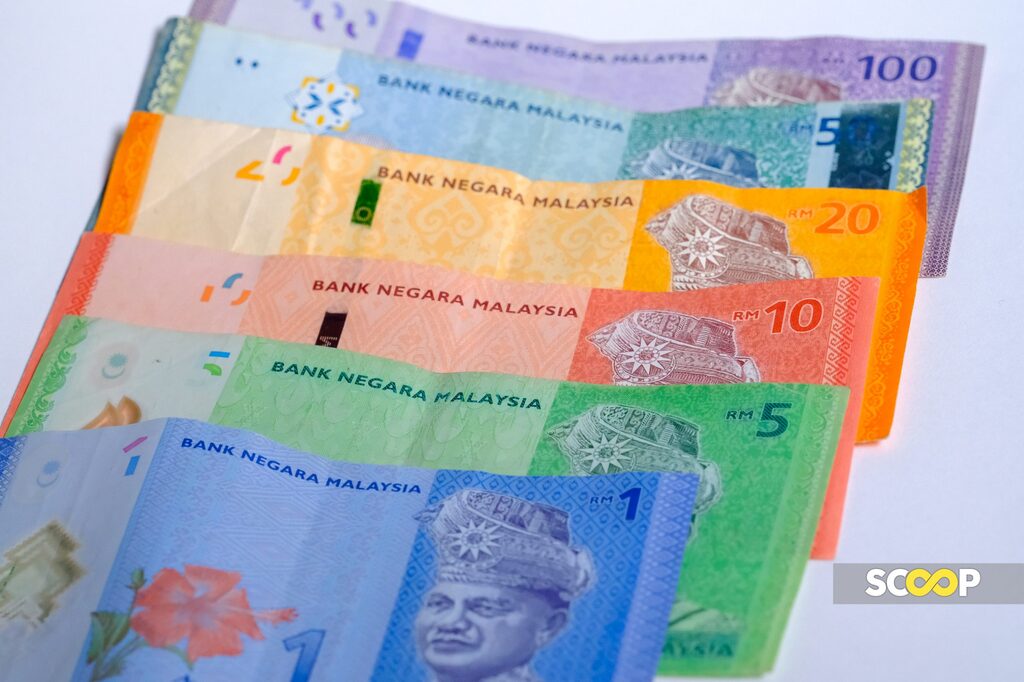KUALA LUMPUR – The ringgit’s recent historic low against the US dollar could present potential benefits to Malaysia, especially in terms of increased demand for exported products, said experts on the matter.
According to Malaysian Export Academy president Abdul Kabur Ibrahim, products and services exported from Malaysia are perceived as being cheaper due to the ringgit’s drop against the greenback, leading to increased demand from international customers.
“In terms of benefits, it could mean our products and services could be cheaper in the international market. Thus, the demand for exports could increase.
“Since many nations are using the US dollar for their export transactions, it would mean higher export revenue from the falling ringgit against the US currency,” Abdul Kabur told Scoop.
He noted that this benefit is not only applicable to Malaysia as it also extends to regional partners whose currencies are facing a similar depreciation against the US dollar, such as the Singapore dollar (4.2% drop) and Indonesia’s rupiah (4.5% drop).

On October 19, the troubled ringgit plunged to an all-time low of 4.7703 against the US dollar, bringing the local currency to depths last seen during the Asian financial crisis 25 years ago. The next day, however, the ringgit appreciated against the Thai baht at 13.0504/0681 from 13.0716/0849, strengthened against the Indonesian rupiah to 300.1/300.7 from 301.4/301.8 and was flat vis-a-vis the Philippine peso at 8.38/8.40 compared to 8.38/8.39 previously.
Recovery and fundamentals
While Abdul Kabur posited that the ringgit could continue to fall due to global uncertainties, including the Israel-Palestine war, Prof Datuk Rajah Rasiah, an economics lecturer at Universiti Malaya’s Asia-Europe Institute, said that Malaysia’s exchange rate is expected to recover by next year.
“The ringgit’s fall is not a reflection of the largely falling competitiveness of Malaysian exports.
“Instead, it’s a consequence of the US interest rate policy to cap inflation and continued burgeoning food imports,” he said when contacted by Scoop.
In June, Bank Negara Malaysia’s (BNM) Financial Markets Committee said that the extent of the ringgit’s depreciation is not reflective of Malaysia’s economic fundamentals.
Committee chairman and BNM assistant governor Adnan Zaylani Zahid said then that while the ringgit continues to be affected by global developments, factors supporting the local note include structural reforms and fiscal consolidation efforts by the government.

For economist Samirul Ariff Othman, senior consultant at Global Asia Consulting, such structural reforms are evident in Prime Minister Datuk Seri Anwar Ibrahim’s Madani Economy Framework and the New Industrial Masterplan (NIMP) 2030.
“In the long term, what would strengthen the ringgit is improving the supply side of the economy, which involves improving productivity. There are no shortcuts to this; it’s symptomatic and involves management of interest and exchange rates.
“To say that the government is not doing anything is simply preposterous,” said Samirul, who was formerly senior researcher at the Malaysian Institute of Economic Research.
He pointed to the NIMP as one of the government’s initiatives that highlight the importance of raising economic complexity for sustainable growth as Malaysia transitions to an innovation-driven, high-income economy.
De-dollarisation a solution?
Previously, Anwar had announced that the government, through BNM, is exploring initiatives to trade in local currencies as part of moving towards de-dollarisation efforts that would see Malaysia reducing its reliance on the US dollar.

Addressing the Dewan Rakyat last week, Anwar, who is also finance minister, said that Malaysia’s talks with China, Indonesia and Thailand on the matter have led to the use of local currencies in trade transactions.
This came after the prime minister had earlier proposed for Asian countries to establish the region’s own version of the International Monetary Fund, which experts had previously said could provide Asian nations with an alternative during crises.
However, Samirul cautioned that de-dollarisation attempts are still in the initial stages, leaving it to be seen whether or not such efforts will materialise into significant changes. – October 23, 2023


